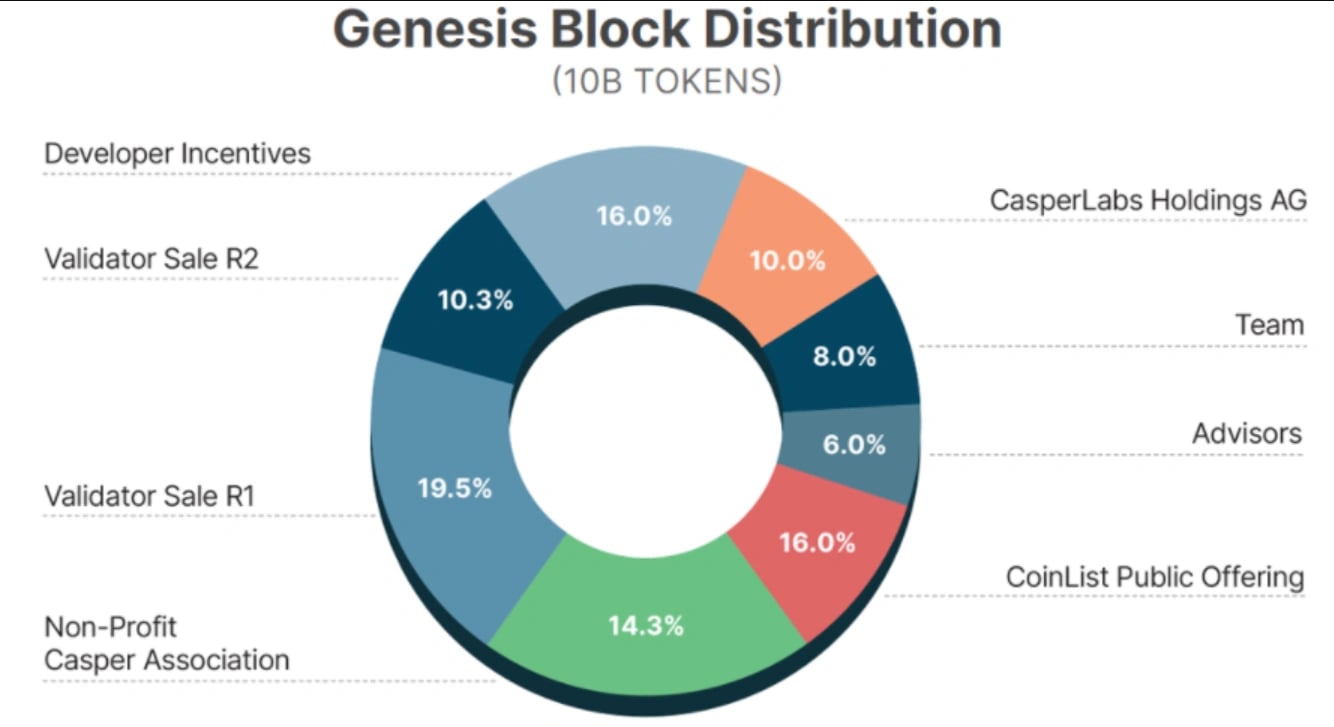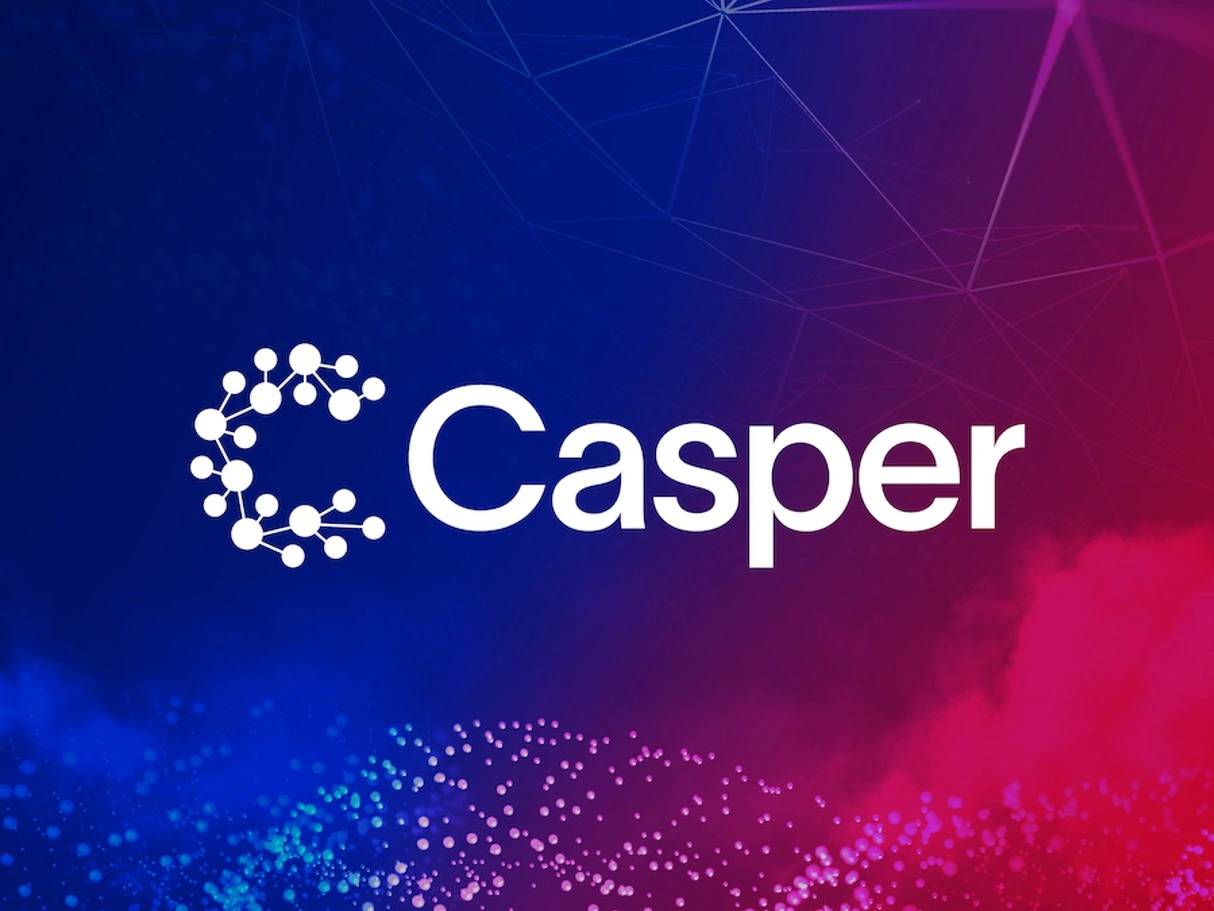Subscribe to wiki
Share wiki
Bookmark
CSPR
The Agent Tokenization Platform (ATP):Build autonomous agents with the Agent Development Kit (ADK)
0%
CSPR
CSPR is the native cryptocurrency, of Casper Network, a decentralized blockchain platform that uses a Proof-of-Stake consensus algorithm, designed to help enterprises employ blockchain based products and services through the use of smart contract deployment and a developer-friendly platform. [1]
Overview
Casper Network's mainnet launched on March 31, 2021 and the initial issuance of CSPR token through an initial public token sale conducted via CoinList took place the following month. The CSPR token serves as the foundation of its ecosystem and is designed as a utility-enabled token, being used for covering network fees, rewarding validators and staking. [2][3]
Utility
Rewarding Validators
CSPR is used to reward validators who actively contribute to the security and operation of the network. Validators play a vital role in processing on-chain transactions through Casper's Proof-of-Stake consensus mechanism. [4]
Staking and Delegating
CSPR can be staked to participate in the network as a delegator. By staking CSPR tokens, individuals can earn a portion of the rewards generated by validators. This mechanism encourages active participation and enhances the network's decentralization. [4]
Network Fees
CSPR is used to pay for network fees associated with transactions and other activities on the Casper Network. These fees ensure the proper functioning and sustainability of the network. [4]
Token Distribution
The initial issuance of CSPR tokens occurred through an initial public token sale conducted via CoinList. While initially distributed with a supply of 800 million tokens, the total supply of CSPR follows a slightly inflationary issuance schedule. [1][5]
At the genesis of the network, 10 billion CSPR tokens were created. It is important to note that CSPR has an inflationary tokenomics model, with an annual supply increase of approximately 8%. This inflationary nature encourages token holders to stake their CSPR tokens, contributing to the network's security and facilitating real economic activity within the ecosystem. [6]

Staking
Staking and Delegating
One of the key features of Casper Network's Proof-of-Stake protocol is the ability for token holders to actively participate through staking or delegation. By staking their tokens, node operators become validators, propose and approve blocks, and contribute to the network's security. Validators earn rewards for their participation. On the other hand, anyone can participate in the protocol without running a Casper node by delegating their CSPR tokens to a chosen validator. Delegators also earn rewards and help enhance the network's decentralization and security. [7][8]
Delegation Rate
Validators determine a delegation rate that represents the percentage of rewards they retain for providing staking services. This rate is applied to the rewards earned from the delegated tokens. [9]
Delegation Fees
When delegating tokens, it is important to consider the delegation process's cost, which is approximately 3 CSPR. To ensure a successful transaction, make sure you have enough CSPR in your account's main purse, including the amount you are delegating. For example, if you want to delegate 1000 CSPR, ensure you have at least 1003 CSPR in your main purse. [10]
Rewards
Validators receive rewards proportional to their stake, rewarding them for securing the network and participating in consensus. Delegators also receive a portion of the validator's rewards, proportionate to their delegated stake minus the validator's delegation rate. However, rewards may be reduced if a validator is offline or cannot vote on many blocks. Rewards are distributed at the end of each era, and the precise reward per block may vary. The distribution is proportional to stakes within the era. [11]
Unbonding Period
For security reasons, when tokens are un-delegated, the protocol imposes a 14-hour lock period. During this time, the tokens remain locked and cannot be transferred or staked. This measure helps protect the network from potential security risks. [12]
See something wrong?
The Agent Tokenization Platform (ATP):Build autonomous agents with the Agent Development Kit (ADK)
